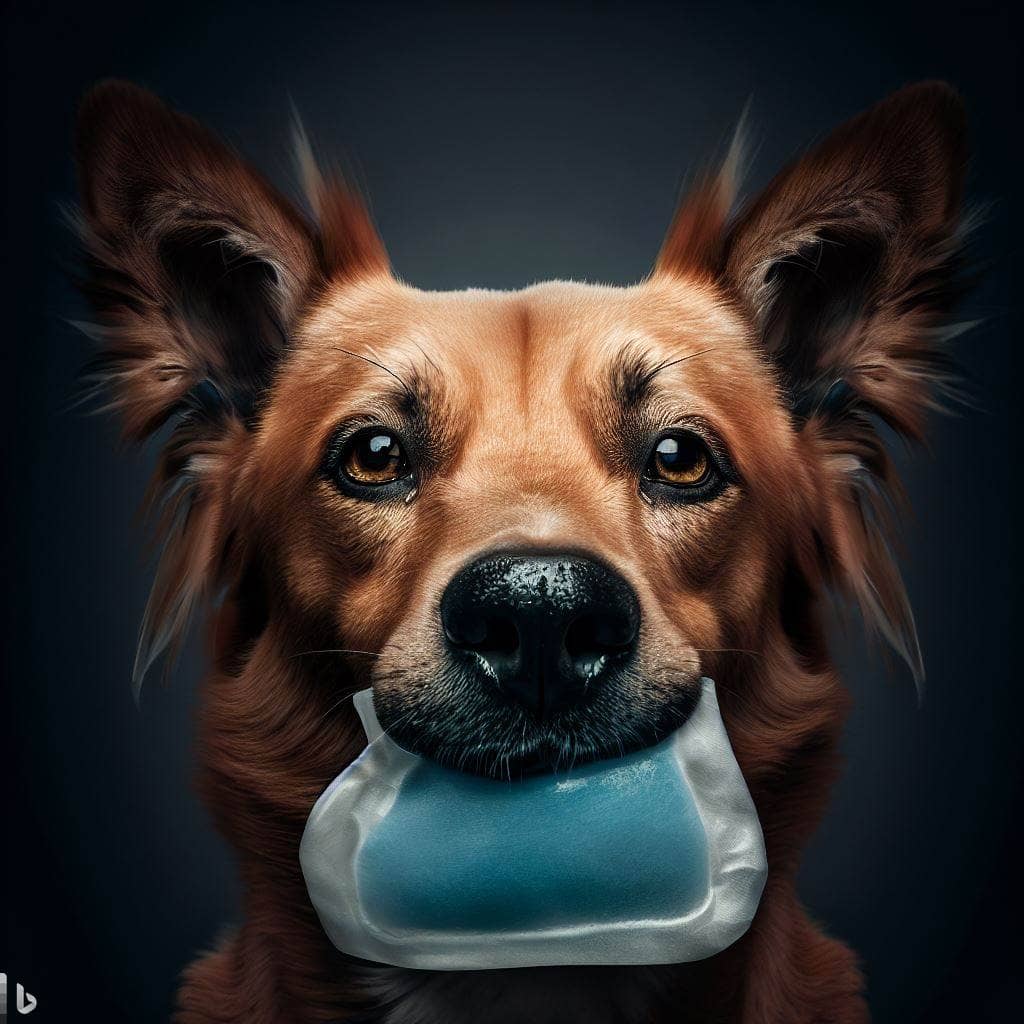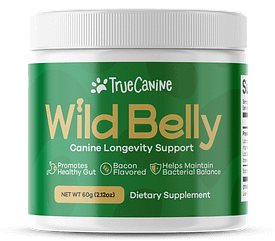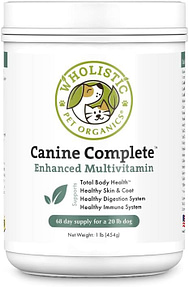How can I ease my dogs tooth pain you ask? If you notice your furry friend is experiencing tooth pain, it’s important to take action to alleviate their discomfort. Tooth pain can cause your dog to become irritable, lose their appetite, and even affect their overall health.
In this section, we will provide you with effective relief tips to ease your dog’s tooth pain. From natural remedies to visiting the vet, we will discuss different methods to help alleviate your dog’s discomfort and improve their oral health.
Key Takeaways:
- It’s crucial to address your dog’s tooth pain to avoid long-term complications.
- There are various effective relief tips to help alleviate your dog’s discomfort, including natural remedies and professional treatments.
- Developing a regular dental care routine for your furry friend can prevent future dental issues and promote good oral health.
Understanding Dog Dental Health
As responsible pet owners, it is our duty to ensure our furry friends are in good health. Dental care for dogs is an essential aspect of maintaining their overall well-being, and it starts with understanding dog dental health.
The Importance of Dental Care for Dogs
Dental care is critical for dogs as it affects not only their oral health but also their overall health. Poor dental hygiene can lead to gum infections, tooth decay, abscesses, and other dental issues. Furthermore, harmful bacteria can enter the bloodstream through the infected gums, causing damage to vital organs such as the heart and kidneys.
Signs of Tooth Pain in Dogs
It is crucial to recognize the signs of tooth pain in dogs to address them promptly. Some common signs of dental issues include bad breath, excessive drooling, bleeding gums, pawing at the mouth, and refusing to eat or drink.
The Significance of Regular Dental Hygiene
Regular dental hygiene can prevent dental problems in dogs and contribute to their overall health. Daily brushing, the use of dental chews, and regular professional cleanings can help remove plaque and tartar buildup, reducing the risk of dental issues. It is vital to establish a regular dental care routine to keep your furry friend’s teeth and gums healthy.
Preventive Measures for Dog Tooth Pain
Preventing tooth pain in dogs is always better than dealing with it later. But how do you know when your dog is experiencing tooth pain? There are a few signs to look out for:
- Difficulty eating or refusing to eat
- Excessive drooling
- Pawing at the mouth
- Bleeding gums
- Bad breath
- Visible tartar or plaque buildup on teeth
If your dog exhibits any of these symptoms, it’s time to take action to prevent further damage and ease their tooth pain.
The most effective preventative measure for tooth pain in dogs is maintaining good dental hygiene. This includes:
- Brushing your dog’s teeth daily with a dog-specific toothbrush and toothpaste
- Using dental chews or toys to promote natural cleaning
- Providing your dog with a healthy and balanced diet, avoiding sugary and processed foods
- Scheduling regular dental check-ups with your veterinarian
While it’s essential to establish a preventative dental care routine, you should also pay attention to your dog’s chewing behavior. Chewing on inappropriate items such as rocks, sticks, or hard objects can cause dental damage and lead to tooth pain.
Avoiding these items and providing your dog with appropriate chew toys can help prevent future dental issues.
Home Remedies for Dog Tooth Pain
If you don’t have immediate access to a veterinarian, there are some natural remedies that can provide temporary relief for your dog’s tooth pain. Keep in mind that while these remedies can help manage your dog’s discomfort, they are not a replacement for professional treatment.
Cold Compress
One of the easiest ways to provide relief to your dog’s painful teeth is by applying a cold compress to the affected area. Wrap a bag of ice in a towel or use a cold gel pack and hold it against your dog’s cheek for up to 10 minutes.
Bone Broth Ice Cubes
Making bone broth at home and freezing it into small ice cubes can also be an effective way to ease your dog’s tooth pain. The cold broth helps numb the pain while also providing some much-needed hydration.
Chamomile Tea
Chamomile tea has anti-inflammatory and calming properties that can help soothe your dog’s sensitive teeth. Steep chamomile tea bags in hot water and let it cool down before offering it to your dog to drink or using it to rinse their mouth.
Cloves
Cloves contain eugenol, a natural anesthetic that can help relieve tooth pain. You can grind whole cloves into a powder and mix it with water to create a paste, which you can then apply to your dog’s gums. Alternatively, place a whole clove near the painful tooth and let your dog chew on it for a few minutes.
Remember, while home remedies can provide temporary relief, they are not a substitute for professional treatment. If your dog is experiencing severe or persistent tooth pain, it’s important to seek veterinary care as soon as possible.
Visiting the Vet for Dog Tooth Pain
While home remedies can provide temporary relief for your dog’s tooth pain, it’s essential to seek professional help if you notice any persistent or severe symptoms.
If your dog’s tooth pain is caused by an infection or injury, your veterinarian may recommend a tooth extraction. This procedure involves removing the affected tooth under anesthesia to prevent further pain and discomfort.
It’s important to note that an untreated tooth infection can lead to serious health complications, such as the infection spreading to other parts of the body. Therefore, it’s crucial to seek veterinary attention promptly to prevent any potential long-term consequences.
Regular Dental Care Routine for Dogs
To maintain your dog’s dental health, it’s crucial to establish a regular dental care routine. This routine should include daily brushing, regular professional cleanings, and monitoring your dog’s dental hygiene.
Brushing Your Dog’s Teeth
Brushing your dog’s teeth is essential for removing plaque and preventing tartar buildup. Use a dog-specific toothbrush and toothpaste, and make sure to brush their teeth gently and thoroughly. Aim to brush your dog’s teeth every day, or at least three times a week.
Professional Cleanings
Regular professional cleanings by a veterinarian are necessary to ensure your dog’s dental health. The frequency of these cleanings will depend on your dog’s age, breed, and overall dental hygiene. It’s important to discuss with your vet how often your dog should receive professional cleanings.
Monitoring Dental Hygiene
Regularly monitoring your dog’s dental hygiene can help identify any potential issues early on. Make sure to keep an eye on their breath, their eating habits, and any changes in their behavior that may indicate tooth pain or discomfort.
By establishing a regular dental care routine, you can help prevent future dental issues and keep your dog’s teeth healthy and pain-free.
Choosing the Right Oral Care Products for Dogs
Using appropriate oral care products plays a significant role in maintaining your dog’s dental health. Here are some tips to consider when selecting dental products:
- Toothbrush: Choose a toothbrush with soft bristles that can fit easily in your dog’s mouth. A long-handled brush or finger brush may work best depending on your dog’s size and temperament.
- Toothpaste: Never use human toothpaste as it contains ingredients that can be harmful to dogs. Look for toothpaste specifically designed for dogs, preferably with natural ingredients.
- Dental chews and toys: These can help reduce plaque and tartar buildup, but be sure to choose ones that are safe for your dog’s teeth and size.
It’s important to note that some dogs may not tolerate toothbrushing or dental chews. If that’s the case, speak with your veterinarian to explore other options for maintaining your dog’s dental health.
Diet and Nutrition for Healthy Teeth
A proper diet and nutrition play a vital role in promoting healthy teeth in dogs. Nutrient-rich food and supplements help maintain good dental health, while avoiding certain foods can prevent tooth decay.
To promote healthy teeth, incorporate raw fruits and vegetables into your dog’s diet. The roughage in these foods acts as a natural toothbrush that helps scrape off plaque and tartar, reducing the risk of gum disease.
Feeding your dog quality pet food with a balanced nutrient profile is crucial for overall health, including dental health. Look for food that contains vitamins and minerals such as calcium, phosphorus, and vitamin D, which support strong teeth and bones.
Avoid foods with high sugar content, as sugar can contribute to tooth decay and other health problems. Additionally, limit the intake of chewy or sticky treats that can stick to the teeth and cause decay.
If your dog needs additional support for dental health, consider adding supplements to their diet. Supplements such as omega-3 fatty acids and enzymes can help reduce inflammation and promote healthy gums.
By paying attention to your dog’s diet and ensuring they receive the necessary nutrients, you can help promote healthy teeth and overall well-being.
Conclusion
Now that you understand the importance of dog dental health, you can take the necessary steps to alleviate your dog’s tooth pain. By implementing preventive measures, utilizing home remedies, visiting the vet when necessary, establishing a regular dental care routine, choosing the right oral care products, and providing a balanced diet, you can help your furry friend maintain healthy teeth and gums.
Remember, it’s crucial to seek professional help from a veterinarian if your dog experiences persistent or severe tooth pain. By prioritizing your dog’s dental health, you not only alleviate their discomfort but also improve their overall well-being, allowing them to live a healthy and pain-free life.
FAQ
Q: How can I ease my dog’s tooth pain?
A: To ease your dog’s tooth pain, you can try the following effective relief tips:
Q: What is the importance of dental care for dogs?
A: Dental care is crucial for dogs as it helps maintain their overall health. It prevents dental issues, such as tooth decay, gum disease, and tooth loss, which can lead to pain and discomfort.
Q: What are the signs of tooth pain in dogs?
A: Common signs of tooth pain in dogs include bad breath, difficulty eating or chewing, pawing at the mouth, swollen or bleeding gums, and a change in appetite.
Q: How can I prevent tooth pain in dogs?
A: To prevent tooth pain in dogs, it is important to look out for signs of dental issues, maintain good dental hygiene through regular brushing, provide dental chews or toys, and schedule regular professional cleanings.
Q: Are there any home remedies for dog tooth pain?
A: Yes, there are natural home remedies that can provide temporary relief for your dog’s tooth pain. These include rinsing the mouth with saltwater, using cold compresses, and offering soft food options.
Q: When should I visit the vet for dog tooth pain?
A: It is crucial to visit the vet if your dog experiences persistent or severe tooth pain. The vet can diagnose the underlying cause, provide appropriate treatment, and potentially perform tooth extractions if necessary.
Q: How do I establish a regular dental care routine for my dog?
A: To establish a regular dental care routine for your dog, you should start by introducing gentle tooth brushing using dog-friendly toothpaste and a toothbrush. Gradually increase the frequency and maintain consistency.
Q: What oral care products should I use for my dog?
A: When choosing oral care products for your dog, opt for toothbrushes and toothpaste designed specifically for dogs. Additionally, dental chews and toys can help promote good dental hygiene.
Q: How does diet and nutrition affect my dog’s dental health?
A: A balanced diet and proper nutrition contribute to healthy teeth in dogs. Avoid feeding them sugary foods or treats and consider incorporating dental-friendly diets and supplements recommended by your vet.
Latest Posts…
- Why Dogs Dig in Bed – Canine Behavior Explained
- Why Do Dogs Bark at Nothing – Understanding Canine Behavior
- Airtag Dog Collar Holder Review – Everything You Need To Know
- Why Do Dogs Sniff Your Crotch? Unraveling the Mystery!
- Why Do Dogs Shake Their Heads? Unraveling the Mystery


